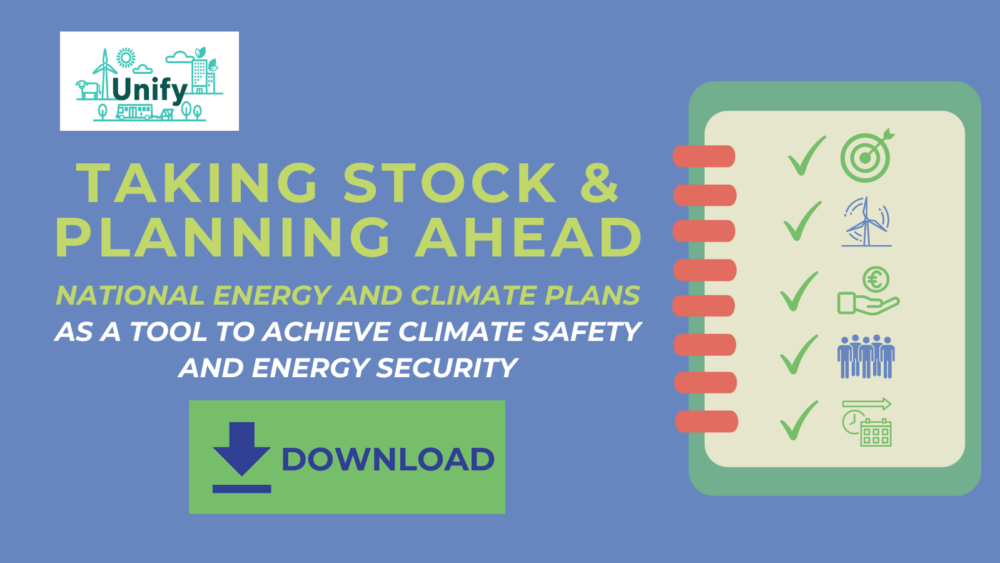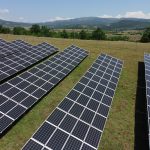Taking Stock & Planning Ahead: National Energy and Climate Plans as a tool to achieve climate safety and energy security
Life Unify Report
July 2022
To do its fair and science-based share under the Paris Agreement, the EU must reduce its greenhouse gas emissions by at least 65% by 2030 and achieve net-zero emissions by 2040. This requires an unprecedented level of climate action, leaving fossil fuels in the ground and substantially increasing sustainable renewable installations and energy savings measures in this decade – especially in light of the current, fossil-fueled energy crisis stemming from the Russian war against Ukraine.
National Energy and Climate Plans (NECPs) can be a powerful instrument in the EU’s contribution to limit global warming to 1.5°C, while at the same time ensuring energy security and energy justice across the EU. In their NECPs, EU Member States are required to describe, in an integrated manner, national climate and energy objectives and targets – as well as the policies and measures to achieve them – for the period from 2021 to 2030.
The LIFE Unify consortium has monitored the drafting and early implementation of NECPs for the last three years and in this final report concludes that, in their current form and with their current overall level of ambition, NECPs developed by EU Member States between 2018 and 2019 are dramatically unfit for purpose.
The upcoming NECPs revision, taking place between 2023 and 2024, will be a fundamental opportunity for EU Member States to set things right – to bring NECPs much closer to their real, transformative potential. Drawing from national experiences from 10 different EU countries – Croatia, Czechia, Denmark, Estonia, France, Germany, Poland, Portugal, Slovenia and Spain – this LIFE Unify report provides a stocktake of the current state of play of NECPs ambition and implementation and, most importantly, provides key recommendations for successful NECP revision, both in individual countries and overall.
These key recommendations for Member States can be summarised as follows:
-
Increase the level of ambition of 2030 climate and energy targets
-
Develop robust policies, measures and plans to deliver on ambition
-
Back up policies with climate-proof and fair investments, shifting away from fossil fuels
-
Improve public participation and transparency
-
Ensure consistency across policies and towards climate neutrality
The Annex to this paper, comprising 10 individual country accounts, offers valuable insights about specific national contexts and more detailed, country-specific analyses, assessments and recommendations.
Read and download the full report below




